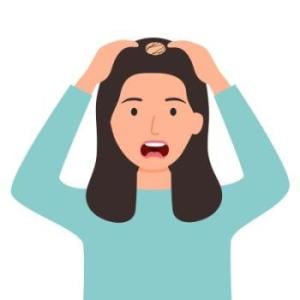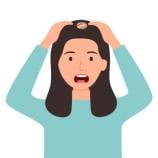When Body Focused Repetitive Behaviors (BFRBs) Take Over
When Body Focused Repetitive Behaviors (BFRBs) Take Over

According to the DSM 5, Body focused repetitive behaviors (BFRBs) are classified as obsessive – compulsive related disorders. These behaviors include hair pulling, skin picking, and nail-biting (along with some other repetitive behaviors). While these behaviors can often be common habits, they become pathological when they are performed frequently despite wanting to stop and a physical impact, distress, or functional impact (David et al. 2018).
The question remains: How do we treat BFRBs?
Psychotherapy is great place to start. This should include a form of cognitive behavioral therapy. A good therapist will individualize this approach and match the treatment with specific symptoms of the individual. This may include habit reversal training, comprehensive behavioral therapy, acceptance and commitment therapy, and/or dialectal behavioral therapy.
What happens when psychotherapy isn’t enough?
Sometimes patients have difficulty engaging in therapy when the symptoms are too severe. Other times patients engage in therapy but cannot seem to make progress. These are times when medication should be considered.
What medications options are there?
Studies have made some support for the following medications:
- SSRIs (first line treatment) – used first due to the high co-morbidity of OCD, but efficacy is limited.
- clomipramine (first line treatment) – has been proven helpful in OCD, but not necessarily BFRBs.
- Lamotrigine – thought to be helpful because of impulse control efficacy by working on glutamate; however, studies have not shown clinical significance.
- Olanzapine – thought to be helpful due to root causes that are similar to Tourette’s syndrome. Safety and efficacy have been demonstrated in small studies.
- N-Acetylcysteine – this is a naturally occurring amino acid. The efficacy has shown to be promising especially among those with hair pulling.
- Inositol – has been beneficial in other disorders such as OCD, binge eating, panic disorder, PTSD, and depression; however, few studies have been conducted on BFRBs and none have been proven to reduce symptoms.
- Naltrexone – often used for cravings with alcohol use disorder. Due to the overlap in BFRBs having difficulty with impulse control this drug may be helpful; however, no studies have supported its use.
How do you choose the right medication to treat BFRBs?
1. Understand the patient’s symptoms and co-morbid disorders.
- Using a first-line treatment for other disorders may provide insight on the root cause.
2. Get a good family history.
- Most patients with BFRBs have a family member with OCD spectrum disorder.
- Patients who have a family member with alcohol use disorder have found more significant benefit using naltrexone to decrease BFRBs.
3. Ask the patient about their preference for treatment.
- Patients are more likely to stick with a treatment when they are invested.
- Potential side effects may help chose the best treatment to start with.
4. Provide good expectations.
- What do the studies suggest? What does successful treatment look like? How much can medication help without therapy? Be open and honest about what you know.
5. Practice being patient.
- It may take a few trials of medications to find one that provides benefit.
6. Remember medication is not always magical.
- Medication treatments are currently evolving and experts continue to have difficulty finding solid evidence to support one medication as being superior.
Sometimes in healthcare, we want a one size fits all “go to treatment”. BFRBs are another good example that we may never find that. Patients come to us when they need help. My goal is to offer patients support and help them understand their bodies and mind. I want to empower them by giving them information and help them navigate the treatments available rather than telling them what to do. When we get stuck during a treatment plan, we may be able to use platforms/groups/societies/organizations like ADAA to collaborate with because one treatment never fits all individuals.
What to do you do when therapy and medications don’t work? What have you found to be the most successful treatment in your practice? Are there any other key points you consider when choosing a treatment plan?
This post is presented in collaboration with ADAA's OCD and Related Disorders SIG. Learn more about the SIG.
References
Houghton, D.C., Alexander, J.R., Bauer, C.C., & Woods, D.W. (2018). Body-focused repetitive behaviors: More prevalent than once thought? Psychiatry Research, 270, 389-393. https://doi.org/10.1016/j.psychres.2018.10.002.
Redden, S.A., Leppink, E.W., & Gran, J.E. (2016). Body focused repetitive behavior disorders: Significance of family history. Comprehensive Psychiatry, 66, 187-192. https://doi.org/10.1016/j.comppsych.2016.02.003.
The TLC foundation for body focused repetitive(n.d) What is a bfrb? behaviorshttps://www.bfrb.org/your-journey/what-is-a-bfrb
















